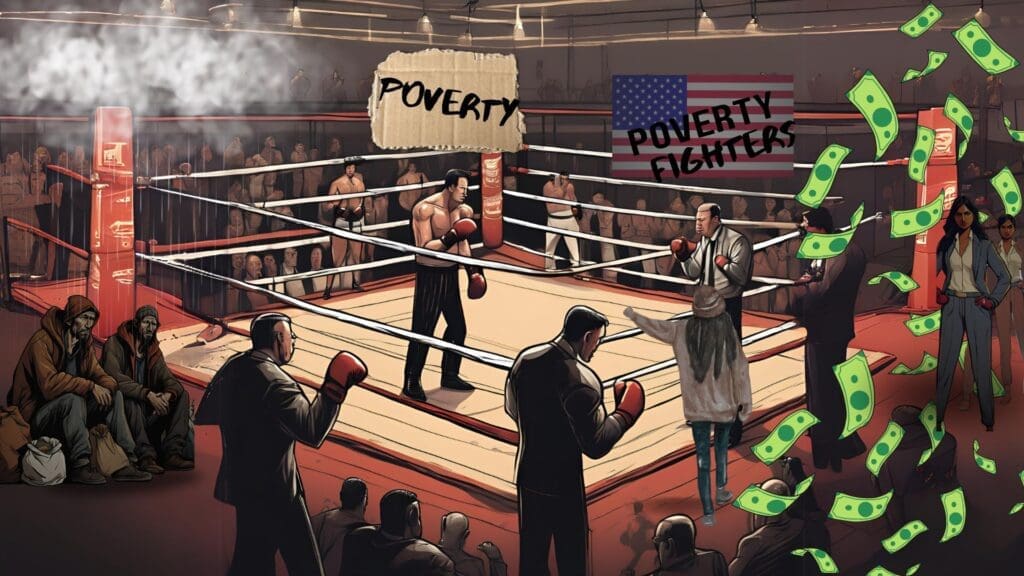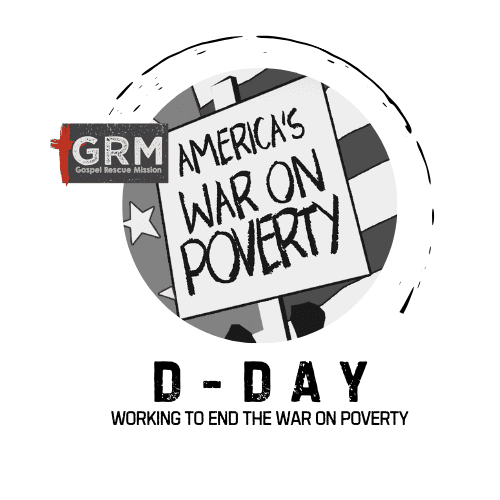In the war on poverty, we have essentially called a cease fire. Both sides have retreated to their corner, they are taking a break, and taking a cool drink of water. They are listening to their coaches give them inspiration. Those on the poverty fighting side are confused and bewildered on why they have not been able to take down the reigning champ of poverty. Day by day, they swing at their opponent and land some great hits.

With our current system, these men and women in America are doing better than they would in a third world country. They have access to food, an apartment, and health care. All of this is better than in remote countries, where the poor must eke a living out of dust and rocks. Those served by Federal programs and most non-profits feel good about their efforts. The children appear healthy and have the opportunity, unlike their third world counterparts, to attend school.
The stories of these children and families are presented to legislature at state and federal level to show the success of their programs. A sprinkling of stories about the family still living in an apartment a year later. In between stories, numbers are touted to again validate the greatness of their program, followed by an assertion that if the legislature does not vote for further funding, that they are harming the children. If the congressperson dares to vote against the funding, they will be crucified in the media as heartless and uncaring. The media will highlight how many meals and rental assistance and utility bills are being paid. Others in congress will need to think twice about cutting funding if they want to be reelected.
At least a part of the reason that poverty will not go down, is that all of the attacks are hitting a hardened target and are not landing on anything critical. A year later, if the agency is still paying the rent, they are actually holding poverty up and not actually hitting it. In one of the last great attempts at welfare reform, most programs could only offer help to a family for five years. The idea was that the agency would help them come off of the welfare rolls in that timeframe.
When I arrived in Washington state in the early 2000s, the social workers in the region had decided to ignore the five-year time limit. Some had ten or fifteen years on that program. When the program hit a certain level of glut, they realized that they could no longer afford to keep up with the need. It was then that they decided that it was time to enforce the five-year rule. If they had initially followed the rule, the number coming off of the welfare rolls would have been a trickle compared to the flood of people that were suddenly tossed on the streets. The legislators were accused of being heartless, but it was actually the social workers who did not do their job preparing these men and women for freedom.
But nobody called them out since they appear to be loving and caring.
Unfortunately, these social workers are part of the poverty industrial complex. While they would be unlikely to admit it, they need the poor in order to keep their job. If they actually helped these men and women to experience freedom, they would be out of a job. If they build the numbers of the needy up enough, they can ask for more money. The cycle is quite perverse and dangerous. The money they are asking for is taxpayer money. As the poverty industrial complex grows, it costs more and fewer people are paying for it. There will be a tipping point where all programs will need to be shut down because it is unsustainable. The modern social worker hopes that the tipping point comes at some point after their retirement, kind of a Ponzi scheme. Who will be left holding the bag when the bill comes due?


